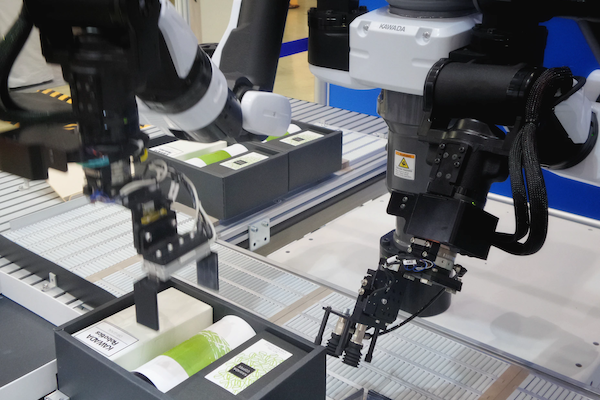
Seeding your lawn isn’t so bad. Basically you clear and prep the soil, spread seed, water, and in good time, you’re mowing and edging beautiful green grass. That is of course assuming yours isn’t the size of the White House lawn. That’s a little more labor-intense. Imagine if you had to seed Yankee Stadium? Or Augusta. Obviously, those who landscape at that scale use machines — large, industrial machines manned by teams of workers. Baseball fields are roughly 120,000 square feet (2.75 acres). Augusta National Golf Club sits on 365 acres (or about 16 million square feet) of rolling green real estate. The jump from seeding your own front yard to seeding The Masters is a 147,000 percent increase. In other words, the difference in labor is difficult to fathom. A similar kind of dynamic exists with data.
As of 2017, 90 percent of all data that had ever been created was generated in the previous two years. We shudder to think about how much more data the world has accumulated in the last three years alone. It’s not all Netflix streams and cat memes either. Considering how much product is consumed by the global population, there are several metric tons of data being generated by the supply chain too; machine automation makes sure of it. But with the arrival of Industry 4.0 and the proliferation of smart manufacturing, our galaxies of data are becoming boundless universe. Like holding out a fistful of seed against those 16 million square feet of Georgia earth, managing it all might feel impossible.
The Data Impact Of IIoT In Manufacturing
The rise of the industrial internet of things (IIoT) hasn’t done manufacturers any favors. About 31 billion IoT devices floating around the world today are each pumping out more than their fair share of data. And why? Because margins are tighter, turn-around is more urgent, and competition is fiercer than ever. Data transparency at every level of the supply chain is necessary for contemporary logistics.
Inefficiencies in the supply chain cost businesses almost $2 billion annually in lost productivity in the United Kingdom alone. Supply chain managers need greater operational visibility to remove friction and wasted man hours. IIoT sensors placed on tools and parts create operational visibility and insights that improve performance and reduce downtime due to unscheduled maintenance or replacements. Alerts of impending mechanical failures can even preempt lost batches of materials due to these unforeseen events.
Asset Intelligence
Asset intelligence provides pinpoint location data on assets anywhere in the world, creating greater accountability, collaboration, and a more customer-centric business model. Shelf sensors can detect low stock and trigger a re-order. Connected warehouses use autonomous robotic carts to collect goods for shipping. Damaged goods can be tracked and traced to increase accountability.
Telematics devices are planted on vehicles to track speed, location, acceleration, maintenance, and time on the road. Even time spent idling is captured to curtail emissions. Whole fleets are tracked so businesses, and even consumers, can see where materials and goods are in real time.
Meanwhile, poor coordination among supply chain partners costs the U.S. food industry $30 billion annually. The food and beverage industry uses predictive maintenance powered by IIoT in the supply chain to improve quality and efficiency to meet regulatory demands without compromising safety. Hazard analysis can be performed in real time to mitigate potentially catastrophic events. And those same vehicles tracked by telematics also probably include sensors that track temperature, CO2 levels, humidity, and more — all critical factors in avoiding spoiled product and recalls, and the damaged reputation that comes along with them.
IIoT Meets Supply Chain Management
Landscapers have industrial seeders, irrigation systems, and mowers to deal with their giant lawns — what do we have in manufacturing? We have supply chain management.
The oceans of data that IIoT produces becomes useless without an intelligent way to harness it. That’s where the digital manufacturing transformation SaaS from ThinkIQ comes into play. We harness fact-based granular data to form a contextualized view of material flows and related providence attribute data. ThinkIQ solutions tap into existing IoT infrastructure across supply chains and manufacturing processes to provide unprecedented material traceability and insight that realize significant gains in yield, quality, safety, compliance, and brand confidence while also reducing waste and environmental impact.
Leading brands such as General Mills, McCain, and Mars have deployed ThinkIQ to the success of tens of millions of dollars in operational savings, production yields that exceed expectations (as much as double), smart procurement, 99.999 percent elimination of recalls, and enhanced customer engagement and loyalty.
Let’s talk about your data issues. Our experts are ready to answer all of your questions and help you get a handle on your smart manufacturing processes and the resulting rolling green hills of data, or you can download our new eBook titled "Advanced Material Traceability Revolutionizes Digital Transformation"

